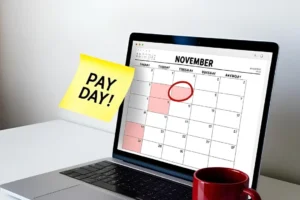Receiving a court summon from a bank for an unpaid loan can feel like a terrifying moment. But don’t panic. A summon is a legal notice, not an arrest warrant—and you have the right to defend yourself, explain your situation, or even settle the matter peacefully.
Here’s what you need to do step-by-step if a court summon arrives at your door.
What Is a Court Summon in a Loan Default Case?
A court summon is an official order requiring you to appear in court regarding your unpaid loan dues. It’s usually issued after:
-
The bank or NBFC has sent multiple legal notices
-
You have not responded or settled the matter
-
They have filed a civil case (such as a summary suit or recovery petition)
It means the legal process has started—but it doesn’t mean you’re going to jail.
Can You Be Arrested for Loan Default in India?
No. Loan default is a civil matter, not a criminal offence—unless:
-
You issued a cheque that bounced (Section 138 case)
-
You committed fraud while taking the loan
For honest borrowers facing genuine hardship, arrest is not applicable. But ignoring a summon can lead to court judgments, asset attachment, and salary garnishment.
What Happens If You Ignore the Summon?
Ignoring a court summon is risky. It can lead to:
-
The court passing a “Ex Parte” judgment (without hearing your side)
-
A recovery decree that lets the bank freeze your bank account or attach your property
-
A warrant (in rare cheque bounce cases)
The best move? Respond within the date given, even if you cannot attend in person.
How to Legally Respond to a Court Summon
-
Read It Carefully
-
Note the case number, hearing date, and issuing court
-
Check the reason: is it a civil suit or cheque bounce?
-
-
Contact a Legal Expert or Advisor
-
Don’t delay—an expert can help you draft a written reply (called “written statement”)
-
If needed, you can request more time or file a settlement proposal
-
-
Appear on the Date or Send Legal Representation
-
If you attend, be respectful, clear, and honest
-
If you can’t attend, send an advocate with your written reply
-
-
Prepare All Documents
-
Loan sanction letter, EMI receipts, bank communication, previous notices
-
-
Try for a Settlement or Restructuring
-
Most cases end in negotiated closure before final judgment
-
Courts often appreciate genuine efforts to repay or resolve the matter
-
What You Should NOT Do
-
Don’t ignore the notice or throw it away
-
Don’t rely on fake agents who promise to “cancel” the summon
-
Don’t panic or argue with bank officials
-
Don’t submit fake documents—it will backfire legally
How Lawfully Finance Supports Borrowers
If you receive a summon, Lawfully Finance can help you:
-
Understand the type of case and possible outcomes
-
Prepare a legally correct reply within the deadline
-
Connect with professionals to represent you in court
-
Negotiate with the bank before or during the case
-
Avoid harassment, fraud, or misinformation
Lawfully Finance offers transparent, commission-free guidance—ensuring your case is handled properly from day one.
Final Takeaway
A court summon for a loan default is serious—but not the end of the road. You can respond legally, respectfully, and smartly.
With the right documents, right mindset, and right support, the situation can be resolved without stress.
And if you need trusted help, Lawfully Finance is just a message away.
Connect with Lawfully Finance
Lawfully Finance has already helped thousands of borrowers across India handle legal summons safely—without commissions or confusion.


